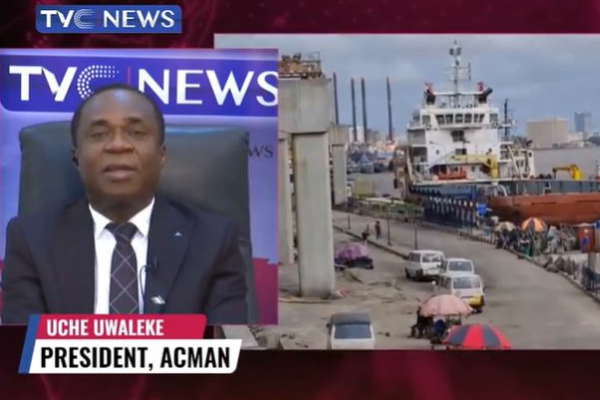The issue issue of fuel subsidy removal has continued to be on the front, burner of national discuss, as many have expressed concerns or various opinions about the impact of deregulation of the downstream sector of the nation’s economy and the citizens.
However, President Buhari insisted that federal fuel subsidy will be completely removed in 2023 and it is no longer sustainable for the government to fund and release money for the provision meant for critical infrastructure across the country for subsidy.
In the same vein, the World Bank had repeatedly warned that Nigeria’s huge subsidy bill poses an extential crisis to the country and its more than 200 million citizens.
[wonderplugin_video iframe=”https://youtu.be/HkUCJxMN10s” lightbox=0 lightboxsize=1 lightboxwidth=960 lightboxheight=540 autoopen=0 autoopendelay=0 autoclose=0 lightboxtitle=”” lightboxgroup=”” lightboxshownavigation=0 showimage=”” lightboxoptions=”” videowidth=600 videoheight=400 keepaspectratio=1 autoplay=0 loop=0 videocss=”position:relative;display:block;background-color:#000;overflow:hidden;max-width:100%;margin:0 auto;” playbutton=”https://www.tvcnews.tv/wp-content/plugins/wonderplugin-video-embed/engine/playvideo-64-64-0.png”]
President of the Association of Capital Market Academics of Nigeria, Professor Uche Uwaleke speaking on the state of Nigeria’s infrastructure on Monday’s edition of Business Nigeria with Tolulope Ogunjobi said the stock of infrastructure to GDP in Nigeria is one of the lowest in sub Saharan Africa, although gradually progressed from 26% a few years ago to about 35% now.
He claimed that when compared to other nations, Nigeria still lags behind in terms of infrastructure for roads, rail, power, and transportation.
This led to the revision of the Master Plan to bridge the gap in infrastructure.
The first Master Plan Nigeria had was in 2012, according to Mr. Uwaleke, and it is currently being updated.
According to the project, the nation will require $2.3 trillion over the course of the following 23 years to close the gap.
“What this translates to is an annual spend of $150,000,000,000 every year.
Prior to now, we mainly relied on budgetary appropriation, which was supplemented by borrowing from domestic and international sources, but that wasn’t enough.
He pointed out that the average annual expenditure for infrastructure in the nation is currently $3 billion.
The federal government is also examining ways to involve the private sector through creative plans.
“”Infrastructure tax credit that is already in operation.
Additionally, the CBN recently unveiled the Infracco, where it intends to invest up to $15 trillion in infrastructure over time.
He stated that other stakeholders and companies are involved in the Infracco company, which is being championed by the Central Bank.
“We have some private sector funds coming in to support the idea of bridging the infrastructure gap because the amount involved is enormous and cannot be done by the federal government alone.
“The government expects the private sector to meet at least 56% of the requirements in the revised integrated master plan.
“If you go to the National Development Plan 2021- 2025, it is targeting as much as 348,000,000,000,000 to be able to finance the Development Plan. Again, in that plan, the private sector has been projected to bring in at least 85% to 86% of the funds.
Professor Uwaleke believes that bringing infrastructure to the country is not solely the responsibility of the federal government, and that the private sector must play a significant role.
According to Professor Uwaleke, the ‘EPP’ public-private partnership is being promoted, and some innovative infrastructure financing schemes are also being considered.
Speaking on the issue of subsidy removal, professor Uwaleke said it was unsustainable.
According to him, the 2022 budget was based on assumption.
“The advocate spend of 25 trillion is based on that assumption that subsidy will go by June.
“We have been told that government has spent as much as 149 trillion on subsidy alone, but you can imagine what 149 trillion could have done in other sectors like education or health.
“The opportunity cost of having subsidy is so huge which also presents major threats.
“The more the subsidy stays, the more this budget proposal becomes unimplementable,” Uwaleke added.




